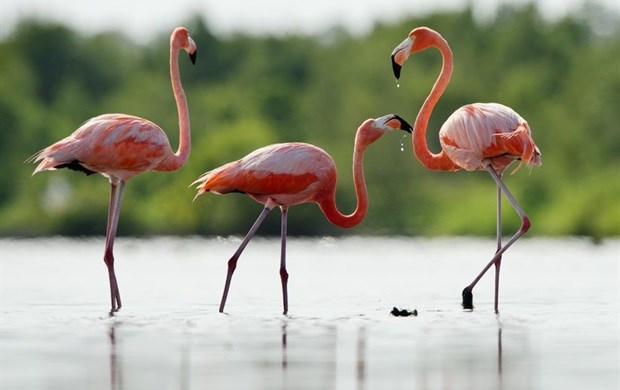Research released by the BBC indicates that watching nature programmes has a direct impact by increasing the mood and wellbeing of its viewers.
The research, The Real Happiness Project, conducted with Professor Dacher Keltner, an expert in the science of emotion at the University of California, Berkeley, confirms that even short engagement with such shows leads to significant increase in positive emotions including awe, contentedness, joy and amusement. The study also found substantial decreases in emotions such as nervousness, anxiety, fear, stress and tiredness.

© Sergei Uriadnikov via
123RFThe research was commissioned to mark the launch of the BBC’s most ambitious landmark nature series for ten years, Planet Earth II, which premiered on BBC Earth on DStv on Sunday 5 February to nationwide audiences and critical acclaim.
A decade ago, Planet Earth inspired an unprecedented number of people worldwide to connect with the natural world, gaining an estimated global audience of over half a billion people. Planet Earth II launched in the UK in November 2016 and has already surpassed expectations by drawing the second largest live TV audience in Britain during 2016 and becoming the most successful nature documentary for 15 years.
BBC Worldwide’s in-house research team collaborated with Keltner, who oversees Psychology at the University of California, Berkeley on a two-phased study. A global quantitative research project of over 7,500 nationally representative participants from the US, UK, Singapore, India, South Africa and Australia and a literature review of over 150 scientific studies that have explored the link between a connection with nature and human happiness and wellbeing. To further enrich the study, the research team worked with Crowd Emotion, a pioneering tech startup that specialises in emotion recognition, using innovative facial mapping technology to understand how viewers respond to video footage.
Keltner commented, “The shifts in emotion demonstrated in the BBC study, as a result of watching this powerful natural history series, are significant as we know that wonder and contentment are the foundations of human happiness. If people experience feelings of awe, they are more likely to display empathetic and charitable behaviours and have been shown to be better able to handle stress.”
Mike Gunton, executive producer of Planet Earth II said, “What excites me about this study is seeing how Planet Earth II connects with people on a deep, emotional level - as a filmmaker that is very rewarding. We are always striving to bring our audiences closer to nature and it is thrilling to see how this can generate such positive emotions and have a powerful impact on our viewer’s mood and wellbeing. I hope that in sparking an appreciation of the natural world Planet Earth II will also encourage people to love and protect the natural world.”
Demographic results
The demographic breakdown of the global sample revealed:
- On the majority of measures, women experienced greater changes in emotions than men did through watching Planet Earth II.
- Although both genders experienced significant increases in awe, amazement, wonder, the increase for women was 35% greater than amongst men.
- Watching Planet Earth II had a more pronounced effect on younger people, who were feeling higher levels of negative emotions at the outset. Younger people (16-24s) experienced the greatest amounts of change in nine of the 14 emotion sets amongst all age groups.
- Their significant decreases in levels of nervousness, anxiety and fear; stress and overburden, and tiredness, fatigue and low energy were amongst the largest seen across all age groups in any emotion set.
- Moreover, they had some of the highest levels of these emotions to begin with.
BBC Earth will support the project by publishing a variety of exclusive content across its social platforms. For more information, go to www.realhappinessproject.com.



































